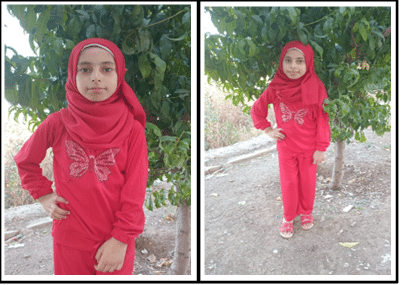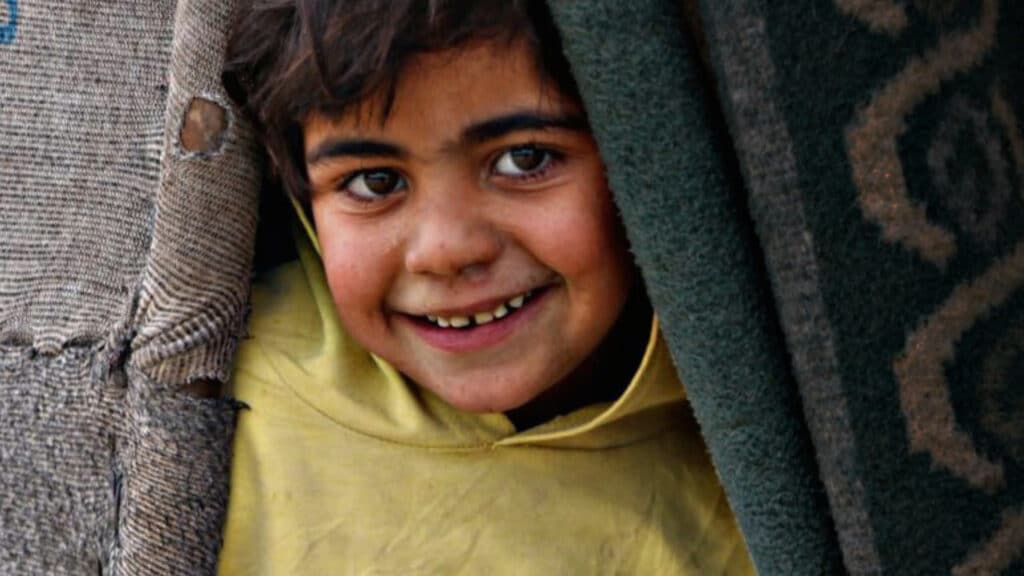This Child Health Day, let’s remember the children of Syria.
The conflict in Syria has displaced 7.2 million people within the country, and there is a worsening economic crisis, mass displacement, and devastated public infrastructure.
Children are often the most vulnerable to this disaster. There are almost 7.5 million children who need humanitarian assistance inside Syria.
Dr. Hanan Balkhy, Regional Director for the Eastern Mediterranean at the World Health Organisation, says of the situation in Syria: “The number of people in need is staggering.”
According to the UN children’s agency: “For many children in Syria, conflict is the only thing they know. They continue to live in fear of violence, landmines, and explosive remnants of war. They struggle with physical and psychological scars of conflict.”
A health crisis and struggling health system
Overcrowded living conditions, the lack of access to clean water and sanitation, as well as outbreaks of cholera, severe acute respiratory infections, measles, lice, and scabies are driving the health crisis.
The health sector is severely affected by the conflict and socio-economic problems, with only 60% of hospitals and primary healthcare centres operational. Half the health workforce has left the country, and essential medicines and medical equipment are in short supply.
There is a severe funding shortfall, as international donors are directing resources to crises in other countries.
Children in great need
As a result of poverty, the rate of acute malnutrition among children has tripled over the last 4 years. And an estimated 650,000 children under the age of five are stunted as a result of chronic undernutrition, exposing them to irreversible physical and psychological damage.
The earthquake in Turkey and northern Syria in February 2023 has only made the situation worse. The interruptions to electricity supply have caused families to resort to unsafe ways of heating their homes and cooking, with greater dangers of fires and burns, especially among children.
Riham’s story

Riham and her family live in a tent, which isn’t a positive experience because of the unhygienic environment and difficult neighbourhood. It’s also hard to get the right help for children, including medical care.
Riham is a pupil at SAWA’s school in Lebanon’s Bekaa Valley, she suffers from a lack of oxygen in the brain and faces difficulty with balance as well as constant tremors. Since she enrolled she has begun to change.
At the beginning of the year, she was introverted, didn’t want to integrate with her friends, and always felt shy because of her medical condition.
Now, thanks to the activities at school and the care of teachers, she has grown in confidence, but she needs more medical support. Her health condition continues to affect her severely.
Our response
With your support, Action Syria is supporting SAWA’s school in Lebanon for Riham and her fellow pupils (school for the next upcoming academic year is currently on hold because of the situation, and we are working with the team on when it will be safe to open). We’re also funding primary healthcare in northern Syria, as well as providing prosthetic limbs.
Primary healthcare
With our funding, a team of 22 staff provide basic health services for around 25,000 patients each year at a primary health clinic. This support is crucial, from caring for new mothers and their babies to treating chronic health issues like diabetes. Access to these services can be the difference between life and death.
Prosthetic limbs
Through our partner, Physicians across Continents (PAC), we provide prosthetic limbs for conflict survivors, including children, near the border with Turkey in north-west Syria. With our support, The Hope Step Centre (the only one of its kind providing humanitarian services for free in Azaz, north-west Syria), can continue its vital work.
Alongside funding staff salaries and clinic costs, we provide the physical therapy and psychological support patients need to cope with the trauma they have faced.
Psychological support
We have also addressed psychological trauma among children affected by the conflict and the February 2023 earthquake.
Children exposed to conflict and displacement, like many Syrian children, are highly vulnerable to psychological trauma due to the violence, instability, and loss they face. Since children are still developing mentally and emotionally, they are more vulnerable to the lasting effects of trauma, including anxiety, depression, PTSD, and behavioural problems. Over the past year, we have worked with our partner, the Syrian American Medical Society, to help these children process traumatic experiences.
We provided professional support, as well as psychosocial support kits, with colouring books, puzzles, and badminton sets. This project reached 905 children, helping them deal with their Post-Traumatic Stress Disorder (PTSD), bedwetting, and sleep disorders. We have also built two playgrounds, so that children have a space where they can play and simply be children.
We need your support
Please donate what you can this Child Health Day, so that we can continue to help children in Syria back to health in the face of these overlapping crises. Anything you give will make a positive impact on the lives of the children we are privileged to work with.

Keeping supporters clued up on our work is important to us. Sign up to keep up to date with where the funds go and the impact they have, and how you can support us.